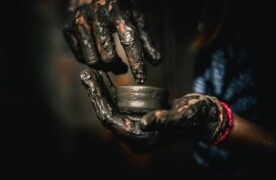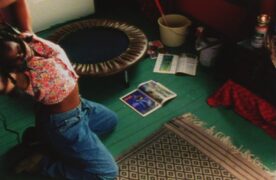In the film “Banzo”, the story of the persistence of neo-slavery, long after slavery was banned builds on the small details of life, and the documents often passed over. The normalization of violence affects everyone involved, but for the labourers it destroys their motivation to engage with life. And, continuing the denial, doctors are called to investigate this new ‘sickness’.
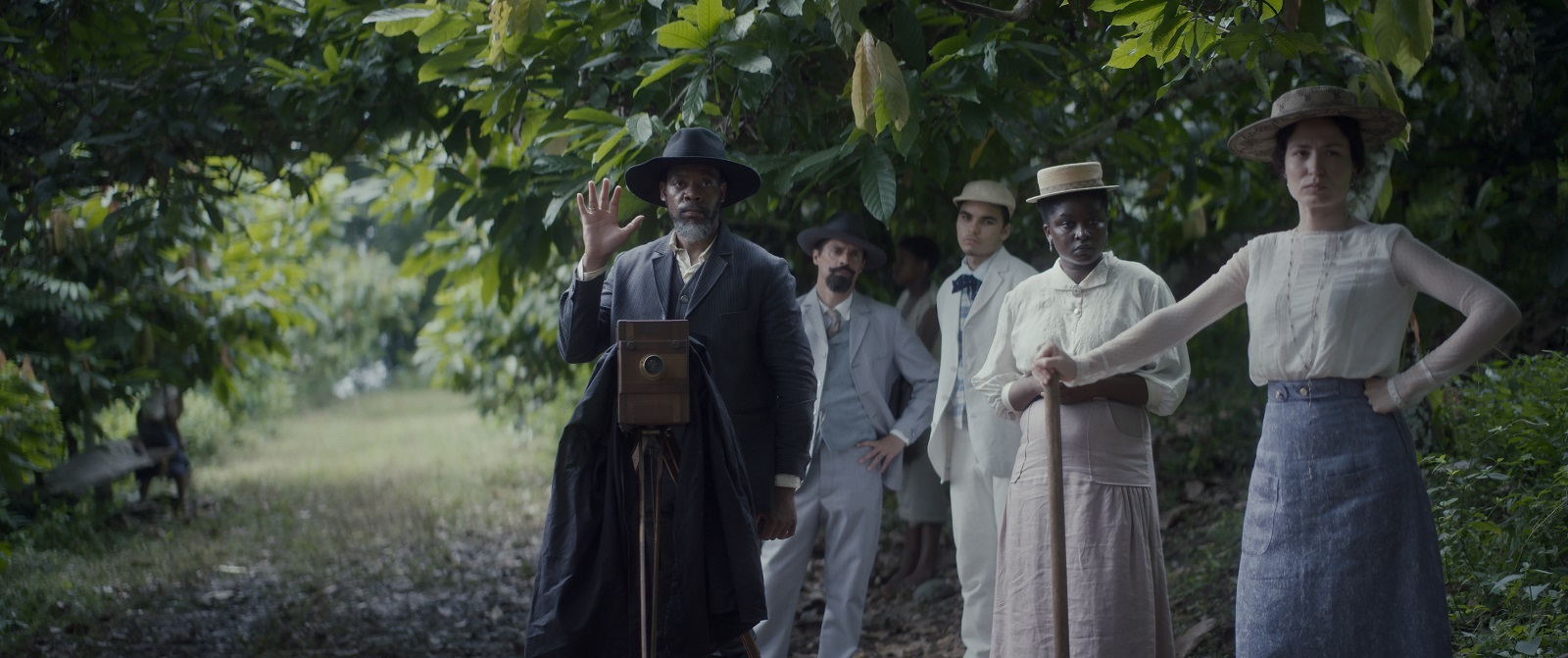 Graham Douglas
Graham Douglas
Slavery was long abolished but the system of indentured labour (contratado in Portuguese) persisted for longer.
By charging labourers for food and accommodation their wages were cancelled, and this only ended in 1975 after independence in the islands of São Tomé and Principe, whose plantations produced cocoa and sugar to sweeten the lives of Europeans. The story is recounted in the best-selling novel “Equador” by Miguel Sousa Tavares.
The workers were Angolans who had been marched often hundreds of miles to a coastal station where they were sold to agents who ‘contracted’ them for 5 years, when they could not even read Portuguese. Labourers were in theory protected against exploitation and could leave, but none of them returned to Angola before 1908, and the film is set just before then.
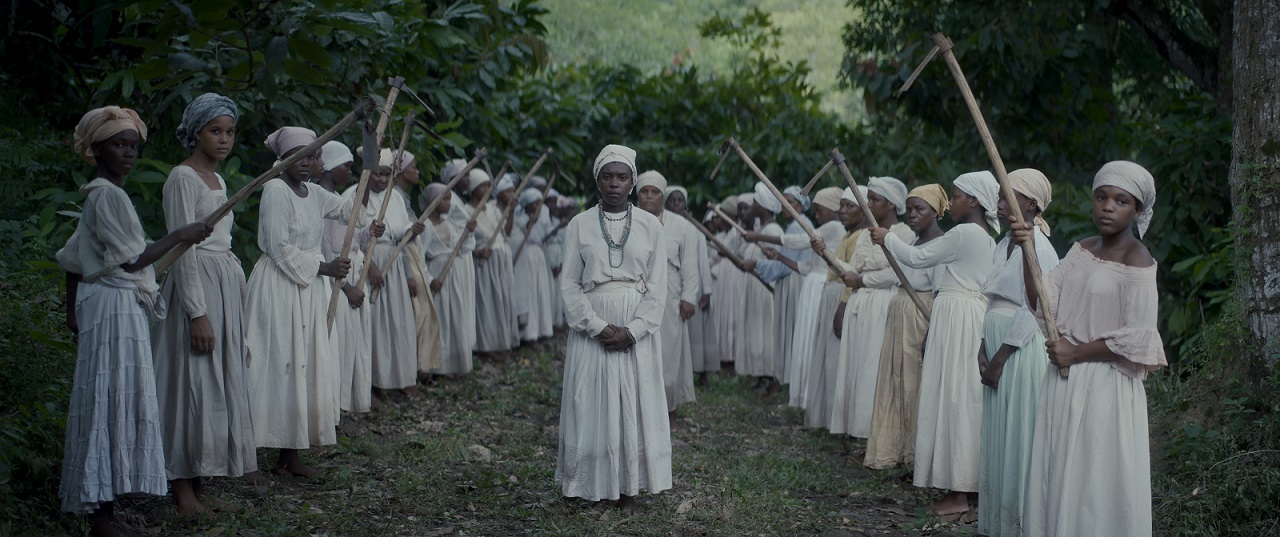 In Margarida Cardoso’s film “Banzo” the violence of slavery is not explicit as she prefers to make films that expresses the dragging atmosphere of silence and normalized exploitation far from western eyes.
In Margarida Cardoso’s film “Banzo” the violence of slavery is not explicit as she prefers to make films that expresses the dragging atmosphere of silence and normalized exploitation far from western eyes.
Banzo is the sickness of displacement, despair, which is often expressed as alcoholism among other colonized peoples such as the Aborigines and Canadian First Nations. Margarida’s father was an Airforce pilot sent to Mozambique when the colonial war started in 1961 and she lived there until the Portuguese revolution in 1974 when she was 13. She is also known for her film “Costa dos murmurios” (“The murmuring coast”), set in Mozambique.
Margarida spoke to The Prisma at the Indielisboa film festival in Lisbon.
Banzo is a sickness of melancholy and separation – a very Portuguese feeling like Saudades?
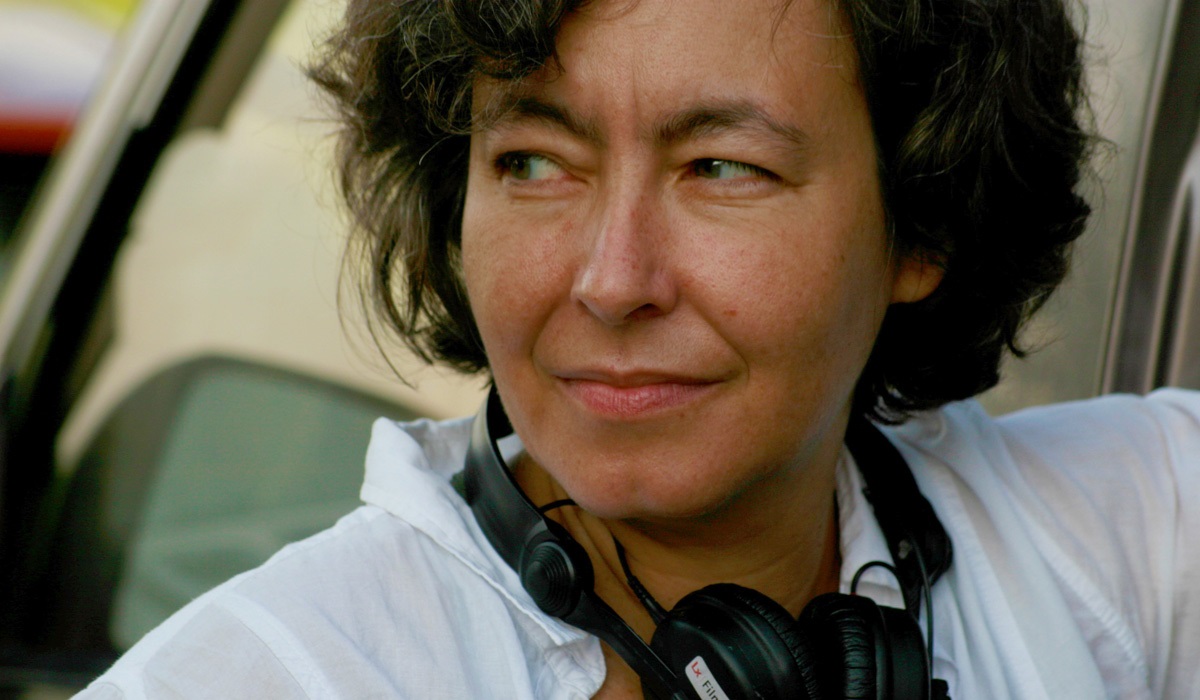
Most people think the word comes from the Kimbunda region of Angola where the word ‘banza’ means ‘home’. Banzo is like saudade, it’s like a shock of displacement.
And it is happening now, especially among child asylum seekers arriving in Nordic countries.
Is the film set in São Tome?
I never give names to the places in my films, but we filmed it there, because I already knew it from my documentary about cocoa production, and because the whole structure of plantations is still there, the big house and the places for the workers and people are living in the ruins. It’s a doorway to another time, and there is also a strong atmosphere of heaviness, the story of the slaves is so present.
Were the islands inhabited before they were colonised?
This is the story even with Madeira, because people don’t want to admit that they stole the land. In São Tomé there are stories about people who arrived there from Angola before the Portuguese, and they still call them Angolares.
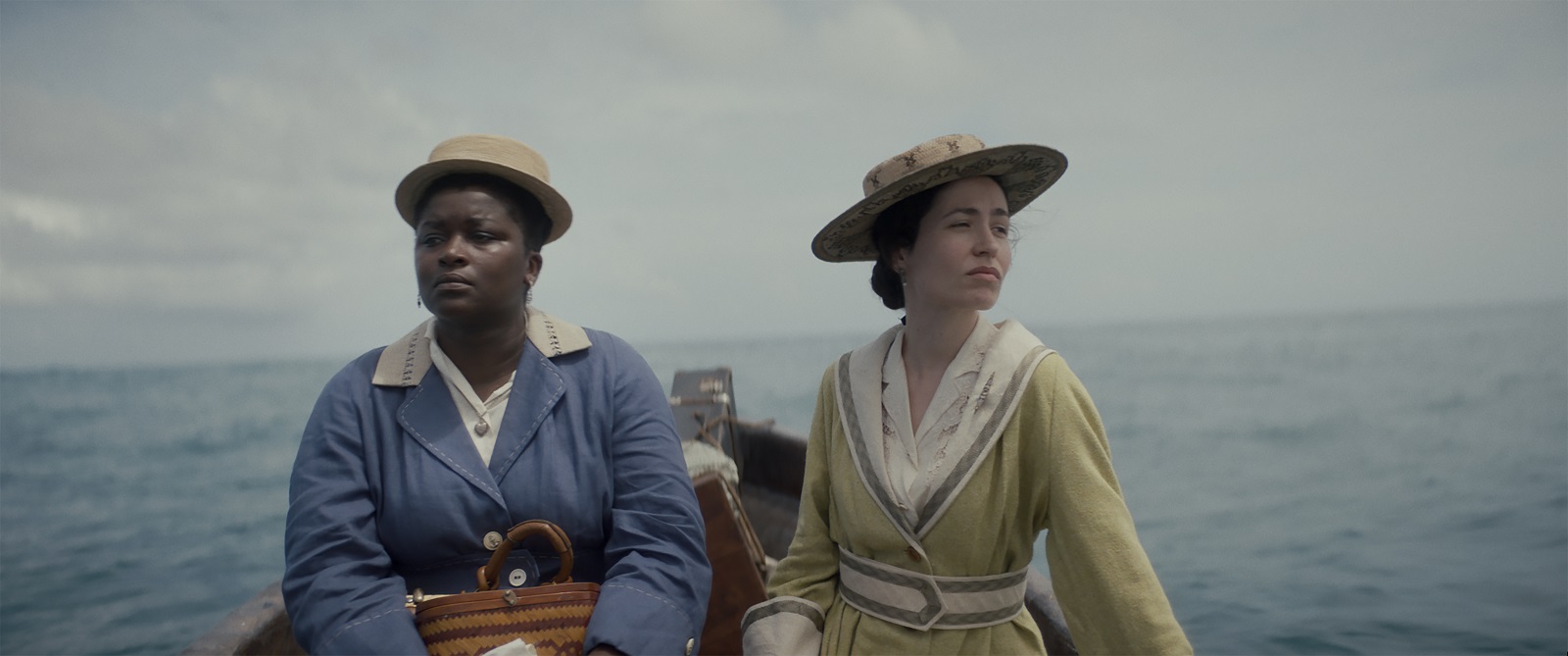 The film is set in a particular year, 1907. Are any of the main characters based on historical figures?
The film is set in a particular year, 1907. Are any of the main characters based on historical figures?
I was inspired by a man called Alphonse who was a photographer in the records of boat passengers in the archives in São Tomé, who stayed there for several months. I chose 1907 because that was the year that photographs of people with amputated hands arrived in Britain from the Congolese missionary, Alice Seely Harris, and photography of conditions in Angola added strength to the campaign in 1908.
Afonso – Alphonse… Deliberate mirroring of names?
Afonso, the white doctor is not a very active person with a distinctive personality, and I don’t believe people in general have such strong identities, we change all the time, so this was my way of blurring their identities.
Everyone knows about slavery so it’s hard to make an exposé nowadays.
Yes, and it’s very contemporary in the way that it’s very hard to identify the people who are in control.
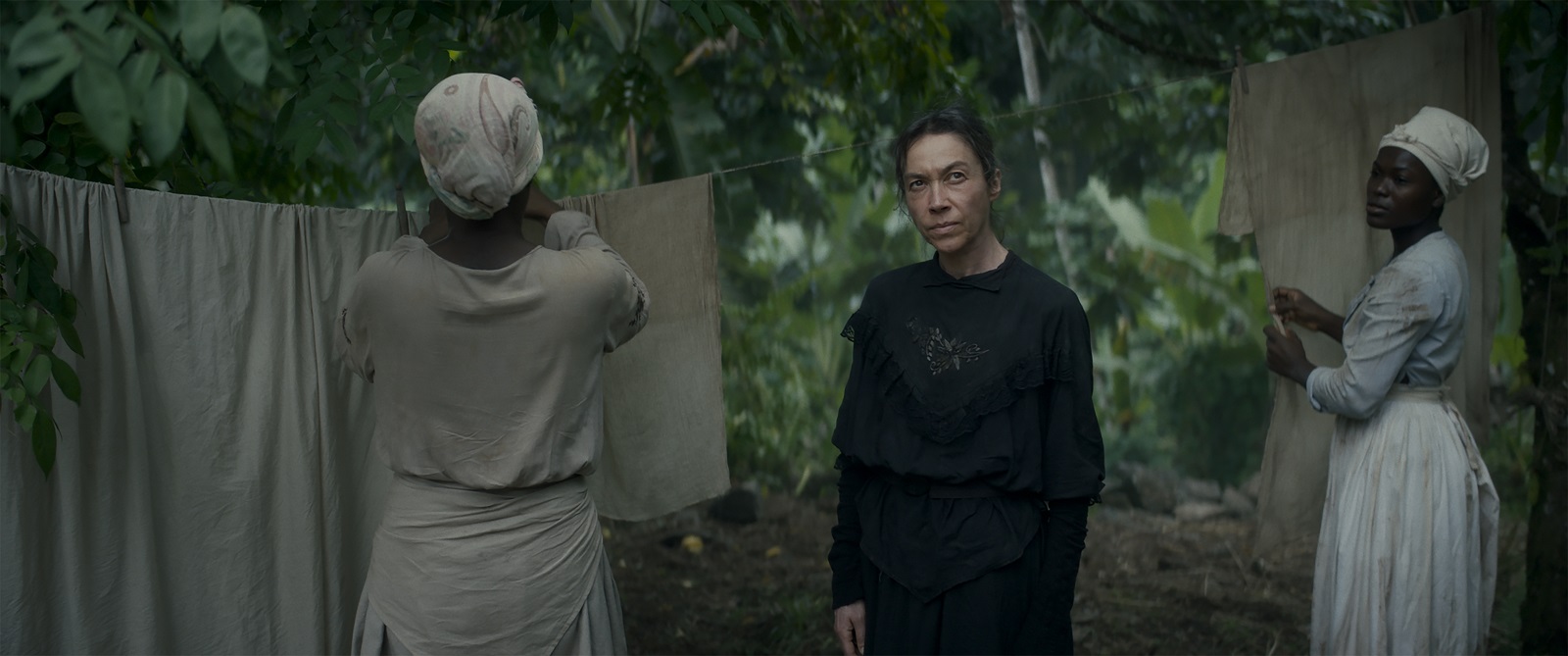 Afonso asks the agent who is supposed to ensure the well-being of the contratados, who sends them to the island, he is told that it’s not possible to know.
Afonso asks the agent who is supposed to ensure the well-being of the contratados, who sends them to the island, he is told that it’s not possible to know.
Alphonse is creating a picture-postcard background for slavery. When the woman asks for a different background for her portrait, and he pulls down a scene in Switzerland, he seems to be satirising the situation, but ultimately, is not he corrupt? He is equally willing to take pictures of the conditions when Afonso asks him if he can show them abroad.
That’s partly his personality, but it’s also the way most people are, we adapt to situations to make a living. He is clever enough to work on both sides.
He is black. Did not this make the labourers angry to see him flaunting his freedom and working with white people?
São Tomé was an island of freed slaves, meaning that the owners of the cocoa and sugar plantations were also black, until the end of the 19th century. It was a very stratified society, and the people at the top were very snobbish, even today.
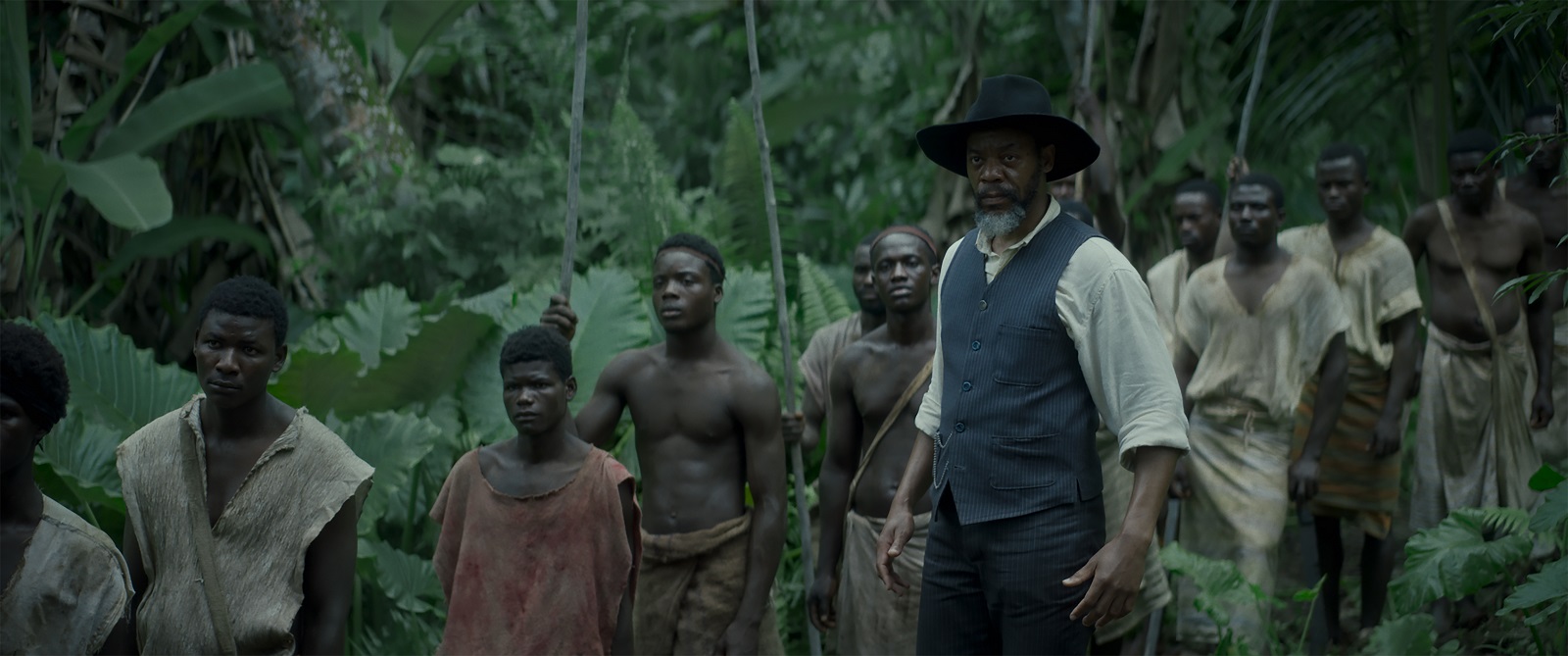 The Portuguese gave them titles like Count and Countess, and they had a high standard of living. Then the European bankers realised that because of chocolate consumption, cocoa was gold, so they bought up these plantations. In the early 20th Century, the Quaker Cadbury company realised that some of their chocolate was being produced in São Tomé, under indentured labour, and the media scandal provoked them finally to boycott Portuguese cocoa in 1909, which led to a crisis between the British and Portuguese governments. Conveniently for the Cadburys, they moved their production to the new plantations in Ghana (the Gold Coast).
The Portuguese gave them titles like Count and Countess, and they had a high standard of living. Then the European bankers realised that because of chocolate consumption, cocoa was gold, so they bought up these plantations. In the early 20th Century, the Quaker Cadbury company realised that some of their chocolate was being produced in São Tomé, under indentured labour, and the media scandal provoked them finally to boycott Portuguese cocoa in 1909, which led to a crisis between the British and Portuguese governments. Conveniently for the Cadburys, they moved their production to the new plantations in Ghana (the Gold Coast).
What effect did your childhood have on you?
The women lived in the cities, a very quiet life, mostly in hotels, because the war was happening in the countryside in the north. The writer of the book, Costa dos Murmurios, which I made into a film, was one of our neighbours.
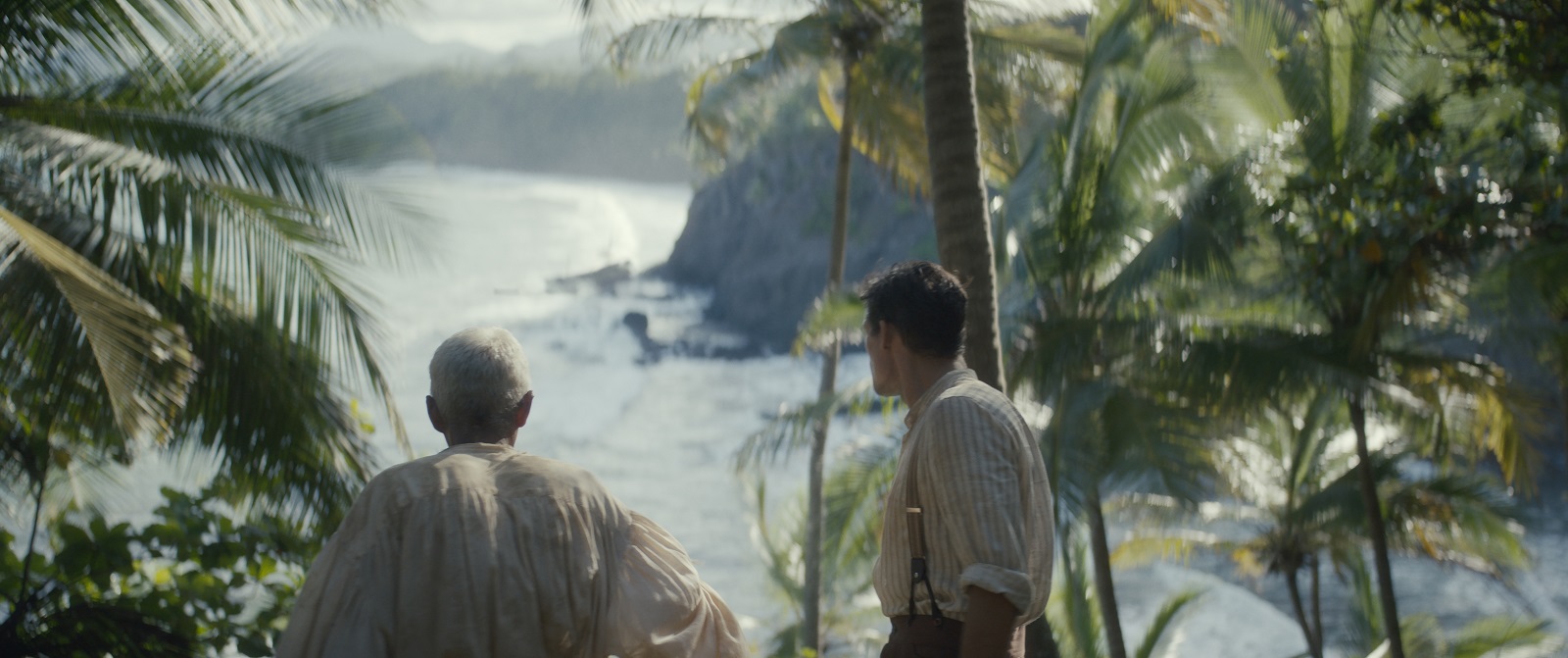 We lived in Beira, which was a port where goods were shipped to and from Rhodesia, as it was called then, and it was incredibly segregated, white people wouldn’t even speak to a black person on the phone.
We lived in Beira, which was a port where goods were shipped to and from Rhodesia, as it was called then, and it was incredibly segregated, white people wouldn’t even speak to a black person on the phone.
Growing up, I knew there was something very wrong, and I wanted to understand it. I felt a strong sense of not belonging, as if we lived in this place at the end of the world. Now, with age it’s different, but I still think a lot about that time. I am very attracted to things that are hard to define, and I think it comes from my experience in that period.
Do you think Portuguese audiences will understand your film in a different way to others?
No, I think people from countries with a colonial history can understand it just as well, and I don’t think about a potential audience when I am writing.
The way that colonial history is presented in European countries is being questioned now. Were you thinking about that while making this film?
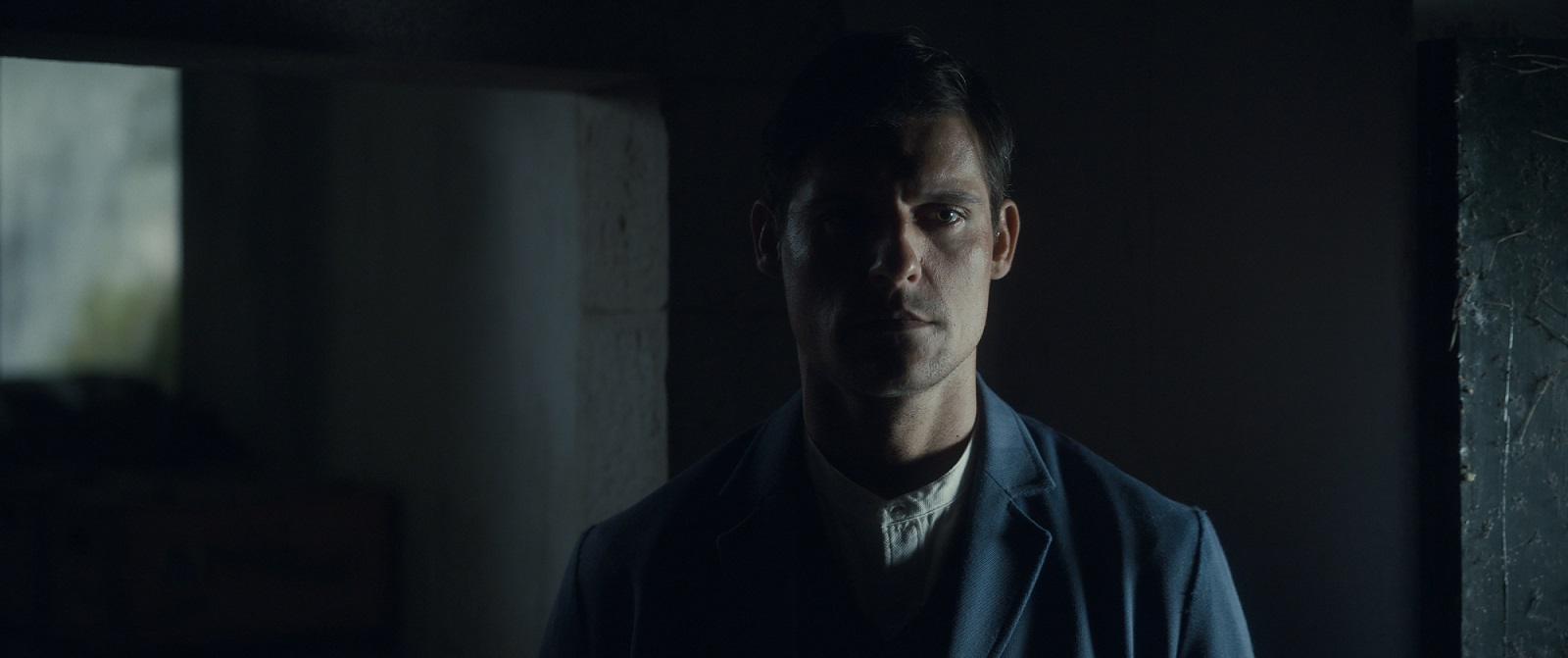 I used to think that it wasn’t such a good idea to pull down statues, and campaign for the removal of the stone memorials in the Praça do Imperio in Lisbon, because it erases the record.
I used to think that it wasn’t such a good idea to pull down statues, and campaign for the removal of the stone memorials in the Praça do Imperio in Lisbon, because it erases the record.
But nowadays I think yes, we must do something about these monuments because they also erase the truth of colonial history. It is important to realise the differences between Portuguese and British colonialism, as Eduardo Lourenço explains in his book “Do colonialismo” (“About colonialism”). The British colonizers said to the natives “Stand up but don’t come close to us”, whereas the Portuguese told them “Come close, but don’t stand up”.
There is this mythology even among academics that Portuguese colonizers were very sweet, and the two peoples intermarried and lived like a happy family.
But you must also remember that before the 1974 revolution, 75% of the population of Portugal was illiterate. We were sometimes more violent because the settlers were very uneducated people who knew nothing about other countries and their history.
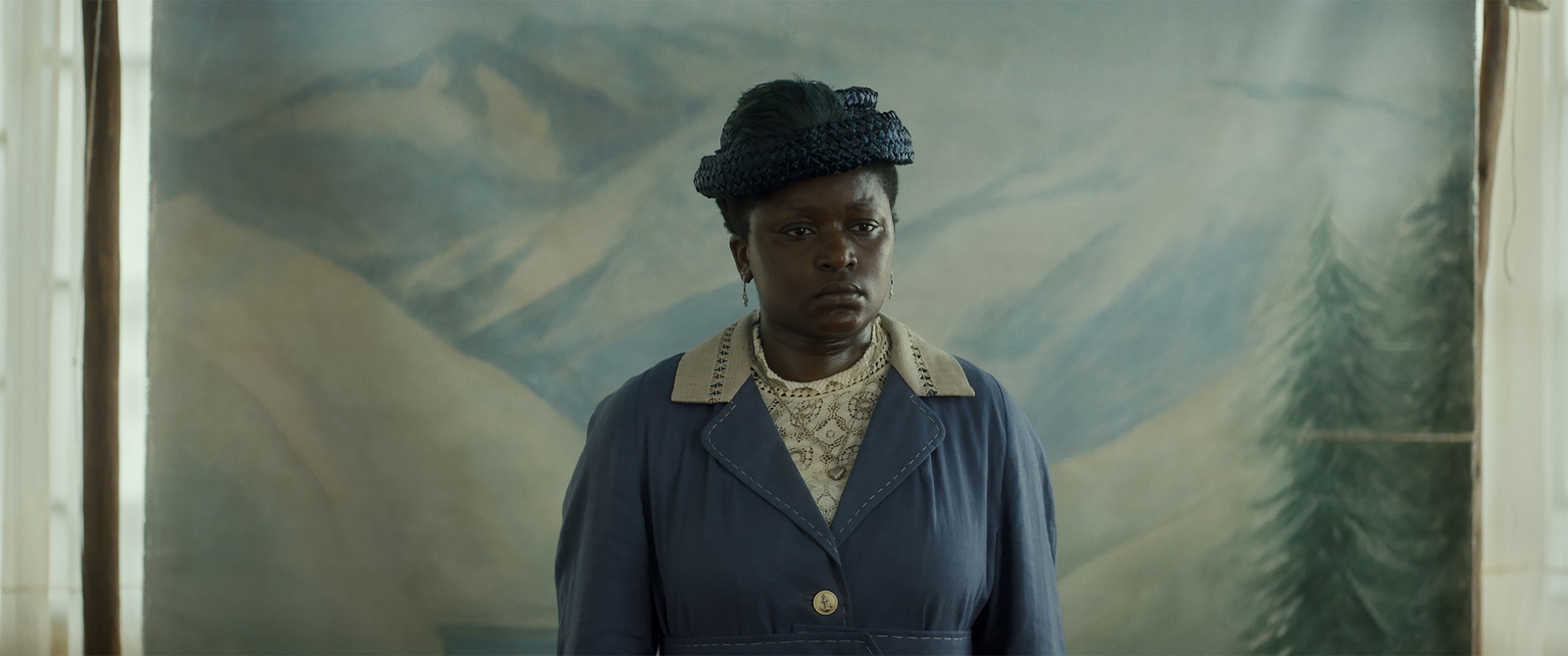 At school, we were taught that Portugal was not a small country, and there is the famous map where areas the size of each colony were superimposed on the map of Europe to say this.
At school, we were taught that Portugal was not a small country, and there is the famous map where areas the size of each colony were superimposed on the map of Europe to say this.
We still have the belief that we are the bridge between Africa and Europe, a special relationship nothing to do with economics, that’s simply not true. A few years ago, when Portugal played Angola in football, there was fighting in the stands. We maintain a lot of ambiguity in our understanding of colonialism, and slowly this must change.
(Photos provided by the interviewee and authorised for publication.)












.jpg)









